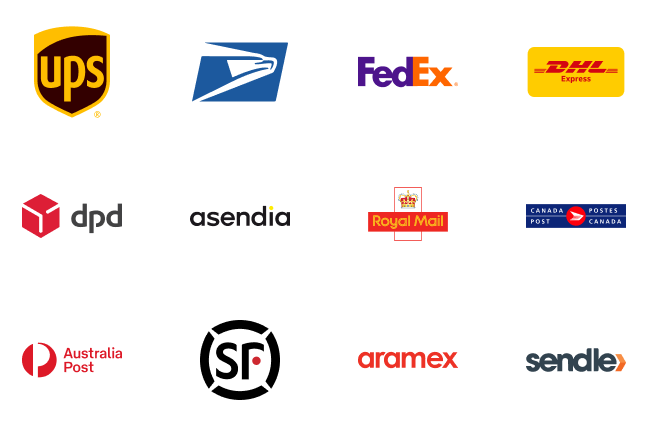Singapore, the Southeast Asian city-state that sits near the equator, is a nation that is very open to cross-border eCommerce.
Forrester Research reports that cross-border sales make up approximately 60% of the country's eCommerce sales. This percentage is significantly higher compared to Malaysia's 40%, South Korea's 25%, and Japan's 18%.
In fact, Easyship data shows that in 2018, it was one of the top shipping destinations from the US.
Being home to approximately 5.6 million people and a total GDP of $296.97 billion, Singapore is ranked as the 39th richest country in the world, according to the World Bank GDP per capita rankings. The country's GDP per capita is currently rated at $54,053, with a projected growth to $59,870 by 2021.
Presently, there are approximately 3.12 million eCommerce users in Singapore, with approximately 998,000 additional users expected to join the existing online shoppers by 2021. In four years' time, these online shoppers are expected to spend an average of $1,234 buying from e-stores.
Market Insights
A variety of reports have shown that the Singapore eCommerce landscape is favorable to online retailers and you really don't want to miss out on the opportunities out there.
These reports further point out that the country's eCommerce market is growing at a fast pace. There is a projected annual growth rate of 10.1% from 2018 to 2022, with a resulting market volume of $5,489 billion by 2022.
The continuing growth is so significant that most major online marketplaces have set up regional operations centers within the country to effectively manage all these sales.
Whether you will be using USPS shipping to Singapore or any other option, you definitely have the opportunity to grow your business by targeting the Singapore market.
Popular Online Marketplaces
The ever-soaring popularity of eCommerce in Singapore has led to the establishment and growth of multiple online marketplaces. Here is are some of the popular online marketplaces:
- Qoo10 Singapore: This is presently the most popular online marketplace in Singapore. As of February 2018, it had an estimated monthly traffic of 11,400,000. It is mostly known for carrying the best brands in women’s products and fashion, especially Korean products. It is gradually but surely expanding its footprint in the Asian region.
- Lazada Singapore: With estimated monthly traffic of 9,650,000, this online marketplace is second to Qoo10 in Singapore but in most of Southeast Asia, it leads in eCommerce. It covers the Philippines, Malaysia, Vietnam, Indonesia, and Thailand. Founded in 2011, this general online store and marketplace allow traders to engage in selling their own products.
- Carousell Singapore: This online marketplace started off as a mobile platform but now a desktop version is available. Carousell has an estimated monthly traffic of 4,450,000 and allows retailers to sell and chat directly with buyers. It also has a presence in the Philippines, Australia, Indonesia, Malaysia, Taiwan, and Hong Kong.
- eBay Singapore: Initially, eBay’s operation in Singapore was mainly for consumer-to-consumer selling. Now, it offers business-to-consumer sales and special deals. As of February 2018, it has estimated monthly traffic of 2,000,000 even as it also offers all general products.
Other popular online marketplaces in Singapore include EZbuy, Zalora, Shopee, RedMart, FairPrice On, Courts, Reebonz, Amazon, Honestbee, Alibaba, and HipVan.
What Singaporeans Like to Buy Online
Statistics show that revenue accruing from all product categories is approximately $3.3 billion, with projected growth to $5 billion by 2021.
Out of these sales, electronics and media are the leading product category in Singapore eCommerce. They are closely followed by toys, hobbies, and DIY.
There are projections that by 2021, electronics and media will still be the most popular product category, followed by fashion.
Best time of year to sell
Just like other countries, Singapore has seasons when sales are known to be best. The best time of year to sell in Singapore include the following:
- Christmas
- Chinese New Year
- Black Friday
- Great Singapore Sale (June-August)
Research has also shown that Singaporeans shop more on Wednesdays and Sundays, between 10:00 pm and 2:00 am. Retailers should consider running deals and offers during this time for a greater chance to increase sales.
Restricted/prohibited items
Every country has a list of items that are restricted or prohibited from being imported into the country and Singapore is no different.
Some of the restricted/prohibited items include but are not limited to:
- Chewing gum (excluding those approved by Health Sciences Authority for medicinal and oral dental care).
- Arms and explosives
- Cigarette lighters
- Rhinoceros horn, whether worked, unworked, or its powder
- Endangered species of wildlife or their by-products
- Certain telecommunication equipment like scanning receivers, telephone voice changing equipment, and military communication equipment.
You can find an extensive list of Singapore’s restricted/prohibited items here.
Shipping to Singapore
Before you start shipping to Singapore, we highly recommend that you research and understand the laws for importing your goods to the country.
Singapore Customs' Quick Guide for Importers is a good place to start. You should know if your product categories will require payment of Goods and Services Tax (GST). You can check our Countries page for additional information.
In order to ensure you offer competitive shipping rates while shipping to Singapore, you can always refer to our Shipping Rates Calculator for a quick estimate. For more accurate rates, sign up for a free Easyship account andGet A Quote.
And, if you're already in Singapore and are looking to ship within the red dot, we also work with a variety of couriers who can offer local delivery at competitive rates. These couriers include:
Conclusion
There is no denying that Singapore is open to cross-border eCommerce, as there is proof of increasing growth in all the online marketplaces. Singapore is a great opportunity if you're looking to expand to a new market and increase sales, as English is widely spoken, couriers are reliable, and the population is tech-savvy and unafraid to do cross-border commerce.
{{ watch-out-for-international-duty-and-tax }}















































.svg)
.svg)






.avif)
.avif)

.avif)
.avif)


.avif)


.avif)










.avif)
.avif)



.avif)
.avif)


.avif)
.avif)


.avif)



.webp)






.svg)





